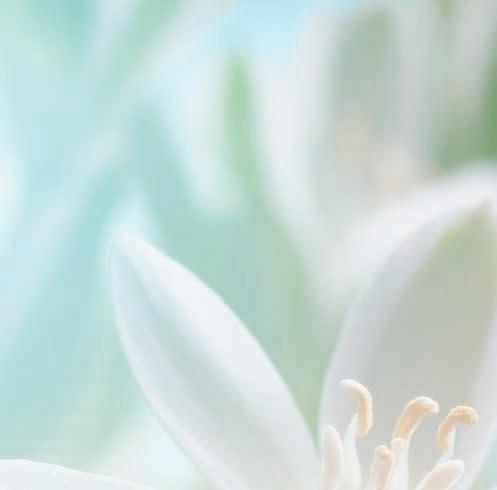
7 minute read
NORTON
FROM PAGE 12 matter what we face, we, and only we, can determine what we bring to the game or situation. Will it be kindness, strength, peace, hope, grace, love, awesomeness, courage, or hope? e choice is yours; the choice is ours. It doesn’t matter what other BYO might be, we get to select our own BYO. What’s yours? If your BYO is kindness, please live it. If it’s strength, please own it. And if it’s
About Letters To The Editor
Colorado Community Media welcomes letters to the editor. Please note the following rules: on an average size lot. We used less than 50,000 gallons of water the last 12 months with a water budget less than 120,000 gallons. Elderly people use about half the water for “personal” use than younger people who have jobs and a family. We have been there and done that.
• Email your letter to letters@coloradocommunitymedia.com. Do not send via postal mail. Put the words “letter to the editor” in the email subject line.
• Submit your letter by 5 p.m. on Wednesday in order to have it considered for publication in the following week’s newspaper.
• Letters must be no longer than 400 words.
• Letters should be exclusively submitted to Colorado Community Media and should not submitted to other outlets or previously posted on websites or social media. Submitted letters become the property of CCM and should not be republished elsewhere.
• Letters advocating for a political candidate should focus on that candidate’s qualifications for o ce. We cannot publish letters that contain unverified negative information about a candidate’s opponent. Letters advocating for or against a political candidate or ballot issue will not be published within 12 days of an election.

According to the world of Google, the average household wastes 11,000 gallons of water annually to bring hot water to the faucets and shower heads each day. Highlands Ranch has approximately 31,000 households. I will let more educated people do this math. I have owned my house since 1997 and did the landscape planning and much of it myself. It is a water-friendly lot with a water-friendly gradient is a vital key in outdoor water conservation. e street appearance, and appearance from the open space, is “better than most and good as any,” a quote from Reader’s Digest about 50 years ago.
If the Herald prints this letter, we will gladly accept a winter of free snow shoveling in appreciation for these tips on how to conserve water.
Roy Legg and Anna Funk Highlands Ranch Survey
says ...
Two years ago (May 2021), Douglas County Commissioners released their bi-annual “Citizen Survey” results. It showed a continued decline in things being in the peace, please keep it. And if it is any other quality or trait that can have a positive impact on our world, please share it. I would love to hear your story at gotonorton@gmail.com and when we can decide which BYO to live, it really will be a better than good life.
Michael Norton is an author, a personal and professional coach, consultant, trainer, encourager and motivator of individuals and businesses, working with organizations and associations across multiple industries.

• Publication of any given letter is at our discretion. Letters are published as space is available.
• We will edit letters for clarity, grammar, punctuation and length and write headlines (titles) for letters at our discretion.
• Please don’t send us more than one letter per month. First priority for publication will be given to writers who have not submitted letters to us recently.
• Submit your letter in a Word document or in the body of an email. No PDFs or Google Docs, please.
• Include your full name, address and phone number. We will publish only your name and city or town of residence, but all of the information requested is needed for us to verify you are who you say you are.
• Letters will be considered only from people living in Colorado Community Media’s circulation area in Adams, Arapahoe, Clear Creek, Denver, Douglas, Elbert, Je erson and Weld counties.
• Do not use all caps, italics or bold text.
• Keep it polite: No name calling or “mudslinging.”[
“right direction” (the survey and gures stated here are at https:// www.douglas.co.us/documents/ douglas-county-voter-opinion-polls1995-through-2023.pdf/). is trend was dismissed at that time as “due to the increase in Democrats in the county.”
Now another survey has been released, and it revealed the same kind of results: 49% were concerned that we are on the wrong track. e commissioners once again stated that “partisanship was ... a driving force behind opinions.”
What the commissioners are ignoring in this “partisan” reasoning is that Republican participation was almost double Democratic (37% vs. 20%), and una liated was even higher (43%). Almost half of the county concerned about our direction can’t be blamed solely on party a liation, and the survey results proves this.
Results showed “Right Direction” dropped 14% since 2019. at is far more than the 6% reduction of Republicans in the same period. at means that some Republicans must also agree that we’re heading down the wrong path.
It is more probable that this concern is driven by actions that commissioners have taken, which have been highly ideological, stubborn, and sometimes personal: opting out of a public health order; accusing each other of leaking “classi ed” material; approving reworks during a drought that started wild res; trying to take over Daniels Park because Denver didn’t want handguns in the park; trying to take water from another county; bullying Tri-County Health Department members into resigning and eventually killing TCHD altogether; passing a resolution proclaiming Douglas County a “safe constitutional county” so they could tell the sheri to not enforce the Colorado red ag law; commissioners stripping another commissioner of board memberships; declaring the pandemic over two years ago; a commissioner’s wife criticizing another commissioner on Twitter; and constant bickering and name calling.
If we want to get back on the proverbial right track, it is time for our commissioners to put the community before their own petty grievances and power plays, and start respecting their constituents’ opinions. ey can say that they value other opinions, but actions still speak louder than words.
Len Whitten Highlands Ranch
Charles (Charlie) Atwell of Highlands Ranch, CO, passed away peacefully on Monday, September 19th, 2022. He was at home and with his family. Charlie was born August,1963 in Roland, Iowa to Judy and Dick Atwell (Nevada, IA). He leaves behind his wife, Sarah alken-Atwell; his two daughters, Emma and Grace Atwell; his father Dick Atwell; his four siblings John, Will, Sarah, and Bob Atwell; and many adored nieces and nephews. Charlie graduated from the University of Northern Iowa with the class of ’86. His life revolved around his family and many friends. When he wasn’t coaching a number of sports teams for his daughters, Charlie could be found making music or hiking. He was an avid runner and had a deep love of the outdoors, especially when it came to the Rocky Mountains. He volunteered for the Big Brothers and Big Sisters of Colorado, Habitat for Humanity and within the Douglas County schools. Charlie will remain an example to all who knew him of what it means to be a good human being. He will be dearly missed by those that love him.
Local foragers teach students to cook with wild foods
ere some see weeds, Erica Davis sees ingredients for delicious soups and salads.
“In urban areas, there are a lot of plants that we call weeds that spring up everywhere, that are widely available to people, that are edible and good,” she said.



Foraging is the act of gathering wild plants from nature, generally to be used for food, and sometimes to make other products. For Davis and other foragers, spring means plants are starting to grow –which means kitchens will soon be full of wild foods ready to be prepared in creative
Across the Front Range and in the mountains, several foragers share their knowledge through cooking classes based on
Why cook with wild food?

Davis, who runs a blog called Wild Food Girl, has upcoming classes in Ramah and Fairplay. Her Arvada class this spring has

“I think one of the biggest challenges with edible wild plants is that people don’t always know how to prepare them,” she said. “We all know how to cook spinach, we all know how to make broccoli — but we don’t all know how to cook tumble mustard so that it tastes good. So in my classes, I like to give students that experience of preparing an edible wild plant — or three — in a way that I think they are going to Davis’ classes begin with an hourlong plant walk where students learn the names of plants and safety and sustainability guidelines for foraging. Afterward, she teaches them how to prepare several of the plants they have for-
In the spring, dandelions and wild mustard greens are common staples in her
“People sometimes picture foraging as going out into the forest and picking plants
— and that’s part of it — but I would really encourage people to learn the weeds and make use of them,” she said. “A lot of them are non-native species, so there really aren’t as many ecological considerations with picking them.”

Davis teaches her students to make dandelion green soup from a recipe passed down by an Italian relative. Musk mustard is great in salads, and tumble mustard and field pennycress are fun to ferment, she said.
Beyond the creative and flavorful uses of foraged foods, research from 2019 suggests that wild edible greens harvested in urban areas can be abundant and highly nutritious. The study dubbed wild edible plants “open-source food.”
“This idea that open-source food is out there for anybody to eat and make use of — and then furthermore, it’s organic, it’s free, it’s fresh — I just think that’s a great concept,” Davis said.
Safety precautions
Despite their affordability and freshness, wild plants are not all safe to eat. Crystal Baldwin, who teaches wild plant-based classes at her Golden business, Earth Sweet Boutique, said it’s always important to triple-check plants before you eat them.
“I don’t like to frighten people away from… foraged foods because there’s a lot of very safe ones,” Baldwin said. “But I like them to be aware that there are dangerous, poisonous ones that will kill you, and so it’s important to kind of have an idea of what those might be and what to look out for.”
Baldwin encourages those interested in foraging to start by taking classes, working with local experts and reading about which plants are safe to eat.
She also said it’s important to check if plants are near old buildings that could be contributing lead to soil or if plants have been sprayed with pesticides.








